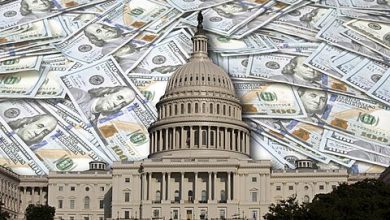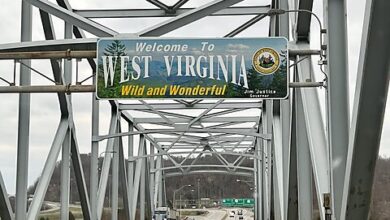Alina Habba and the Problems with Acting Officers

Who is the valid acting US attorney for the District of New Jersey right now? The answer is in dispute, with Alina Habba and Desiree Leigh Grace both claiming the title. The controversy is a case study in how the current system for appointing “acting” officers is confusing, ambiguous, and rife with loopholes.
First, the basics. The Constitution requires, as a default rule, that officers of the United States must be nominated by the president and confirmed by the Senate. But obtaining Senate consent takes time. That means that when an office becomes vacant—especially when that vacancy is unexpected—the office can remain vacant for a lengthy period. For that reason, Congress has created procedures for temporarily filling vacancies without Senate consent. These general procedures have been implemented via a series of statutes known as Vacancies Acts, the first of which was enacted in 1792 and the most recent in 1998.
But the Vacancies Act isn’t the only statute that allows for the appointment of acting officers without Senate consent. Some offices have their own special office-specific statutes providing alternate means of filling those offices temporarily without Senate consent. When Congress enacted the most recent version of the Vacancies Act in 1998, it was aware of 41 such statutes. The text of the Vacancies Act itself states that it is “the exclusive means for temporarily authorizing an acting official to perform the functions and duties of any office” unless another statute provides an alternate means of authorizing an acting officer for a particular office.
The office of US Attorney is one such office that has its own special statute providing for temporary acting service. And it is probably the most unusual of any such statute currently in effect. Under this statute, the attorney general may select anyone she wants to serve as an acting US attorney when there is a vacancy in any district. But this acting appointment comes with a 120-day time limit. If a permanent US Attorney for that district is not confirmed by the Senate within those 120 days, “the district court for such district may appoint a United States attorney to serve until the vacancy is filled.” This means that the selection of an acting officer is made not by anyone within the executive branch, but rather by federal judges.
How is it that an acting officer serving in the executive branch (specifically, in the Department of Justice) can be appointed by officials from the judicial branch? The answer is in the Constitution itself, in an exception to the general rule that all officers of the United States must be confirmed by the Senate. If an officer is merely an “inferior officer,” Congress may waive Senate consent. But even then, Congress may only choose from three options. “Congress may by Law vest the Appointment of such inferior Officers, as they think proper, in the President alone, in the Courts of Law, or in the Heads of Departments.”
When Congress chooses to exempt an inferior officer from Senate consent, it nearly always chooses either the first option (appointment by the president alone) or the third option (appointment by a head of a department, i.e. a cabinet member like the attorney general). The statute providing for acting US attorneys is currently the only statute where Congress has chosen the second option for the appointment of an executive branch officer: appointment by a court of law.
Of course, this congressional choice is only valid if acting US attorneys are, in fact, inferior officers. This procedure for appointing acting US attorneys has been challenged at least twice in the courts, and in both cases, the courts of appeals held that US attorneys are inferior officers because they are sufficiently supervised by the attorney general. And if permanent US attorneys are inferior officers, it follows that acting US attorneys would certainly be inferior officers as well. I think these decisions are probably correct, which would seem to mean that Congress is within its rights to choose an appointment by a court if it wishes.
But there is an added wrinkle: even if the judicial appointment of an inferior officer in the executive branch complies with the Appointments Clause, could it nonetheless violate the structural separation of powers in the Constitution’s design? Justice Clarence Thomas “doubt[s] that such ‘inter-branch’ appointments are consistent with the original understanding of the separation of powers.” It is possible that appointments by courts of law were intended only to be made for inferior officers within the judicial branch, not within the executive branch. Nonetheless, the Supreme Court upheld a judicial appointment of an inferior officer with the Department of Justice (in a since-expired statute) in Morrison v. OIson (1988), so lower courts are likely to uphold such appointments until the Supreme Court reconsiders Morrison.
With this background in place, here is the sequence of events. On March 24, 2025, President Trump announced that the previous acting US attorney for the District of New Jersey was resigning to be nominated as ambassador to Namibia. Per the statute specific to US attorney vacancies, Attorney General Pam Bondi appointed Alina Habba as the acting US attorney once that vacancy arose. But the exact date she did so is now in dispute. Trump announced on March 24 that Habba would become the acting US attorney “effective immediately.” But the administration now claims that Habba was not actually appointed until four days later, on March 28.
This dispute about timing matters. The district court understood Habba’s appointment to expire 120 days after March 24, which was July 22. The court thus appointed Desiree Leigh Grace to replace Habba, effective that date. (The court included a caveat that the appointment would take effect later if July 22 was not the correct end date.) Grace was then serving as the highest-ranking assistant US attorney in New Jersey.
The administration was unhappy with this choice to replace Habba with Grace, and they have now purported to reinstall Habba as the acting US attorney via the Vacancies Act. Whether they have successfully done so hinges on three questions:
1. Did Habba’s initial 120-day appointment expire on July 22 or July 26?
2. Is the Vacancies Act available as an alternative means to appoint acting US attorneys?
3. If the Vacancies Act is available, did Habba’s appointment comply with the Act’s requirements?
If Habba’s initial appointment did not expire until July 26, then the administration has a simpler argument to make in defense of Habba’s continued service. The administration now argues that Grace never became the acting US attorney because Habba voluntarily resigned on July 24, just before her own 120-day term expired. This was the first step in the administration’s gambit to immediately reappoint Habba via the Vacancies Act.
If the administration is right about this timing, then Habba’s purported reappointment under the Vacancies Act occurred before Grace’s appointment by the district court took effect. And that is important, because it would mean that the administration need not wade into the thorny question of who has the power to fire an acting US attorney appointed by a district court.
If, however, the administration is wrong about this timing and Grace’s appointment did take effect (even for just a day), then the administration has an additional hurdle: it must show that it had the power to first fire Grace as the acting US attorney before it reappointed Habba. The administration now argues that if Grace’s appointment took effect, the president had the authority to fire her and did, in fact, fire her.
Who may fire an acting US attorney selected by a court? The truism in administrative law is that, unless there is explicit legal text to the contrary, the power to remove lies with whoever has the power to appoint. That rule makes sense, since the person with the power to appoint an officer would have the most interest in seeing that the appointee performs as the appointer hoped. It also serves as a functional rule that avoids intractable conflict: if the power to appoint and the power to fire lie in two different people who disagree on the merits of an appointee, that appointee could be repeatedly fired by one person and repeatedly reappointed by a different person.
This default rule would suggest that only the district court that appointed an acting US attorney may choose to fire that acting US attorney. This default rule is arguably bolstered by the statutory language that a district court appoints an acting US attorney “to serve until the vacancy is filled.” But that rule would run into two problems, one structural and one textual.
First, the structural problem. Taking the appointment power for an executive branch official out of the executive branch is problematic enough, but taking the removal power out of the executive branch is arguably more serious still. The Supreme Court has repeatedly stressed that the ability to remove an officer is the president’s main tool for control and the main source of democratic accountability throughout the executive branch. If the power to remove lies solely with the appointing court, then an acting US attorney would be entirely insulated from executive-branch supervision.
Second, the textual problem. Another statute states plainly that “each United States attorney is subject to removal by the President.” If this includes acting US Attorneys, then this textual command would seem to override the rebuttable presumption that the power to remove lies with the appointing court. I believe the administration is likely correct that the president has the power to fire acting US attorneys, including those appointed by a district court. If that is right, then there was indeed a vacancy in the US attorney position, whether caused by Habba’s resignation or Grace’s firing.
This brings us to the second key question: Is the Vacancies Act available as an alternative to the statute specific to acting US attorneys?
Since US attorneys have their own statute for acting service, the Vacancies Act is not “the exclusive means” of appointing acting officers to those positions. But does the existence of a more specific statute for US attorneys mean that the Vacancies Act is not available, or does it merely mean that the Vacancies Act is optional? In my view, the Vacancies Act remains an option even when there is an office-specific statute. Reading literally, if a statute is not “the exclusive means” of achieving something, that statute can still be a potential means of achieving it. The two appellate courts to have considered the question in precedential opinions have both ruled that the Vacancies Act remains an option in these circumstances. And although not determinative, the Senate Report for the Vacancies Act did anticipate that the Act “would continue to provide an alternative procedure for temporarily occupying the office” even when an office-specific statute existed.
Finally, even if the Vacancies Act is available, did Habba’s reappointment as an acting officer under that law comply with its requirements?
At least one criminal defendant has already challenged Habba’s appointment. That defendant argues that Habba is disqualified under a provision that (with exceptions not relevant here) prohibits someone from serving as the acting officer for a position if “the President submits a nomination of such person to the Senate for appointment to such office.” Habba had been nominated to be the Senate-confirmed US attorney, but the president withdrew her nomination to avoid this disqualification.
The administration argues in response that this disqualification only applies to those currently nominated for a position, not those who may have been nominated at some point in the past. Given the purpose of this disqualification, the administration likely has the better of this argument. The point of this rule is to discourage the president from using the Vacancies Act to install his first choice for the position. That is because acting officers are supposed to serve as caretakers, not as replacements for Senate-confirmed officials. That purpose is served so long as the acting officer is not the same as the president’s current nominee for the position.
But there is an additional question beyond this issue: was Habba eligible to serve as an acting officer in the first place? There are only three potential avenues for eligibility to serve as an acting officer under the Vacancies Act. Habba clearly does not qualify under two of these three categories: she is not serving as a Senate-confirmed official in some other office, and she did not serve in a position at the top of the civil service pay scale for at least three months prior to the last vacancy in the US attorney position. That leaves only one potential avenue for her service as an acting officer: the “first assistant” to a vacant office is the default acting officer for that office when a vacancy arises, unless the president chooses another option.
Ironically, the “first assistant” to the US attorney for the District of New Jersey was, until last week, the same person whom the district court chose to replace Habba: Desiree Leigh Grace. Thus, to use the Vacancies Act to install Habba, Grace’s job had to become collateral damage. Attorney General Pam Bondi fired Grace and installed Habba as the new first assistant US attorney for the district (the attorney general has the authority to hire and fire assistant US attorneys). Once Habba was installed in Grace’s old job as the first assistant US attorney, Habba became eligible to slide into the acting position pursuant to the Vacancies Act.
This maneuver demonstrates a loophole in the Vacancies Act that I have urged Congress to close. The problem is that the Vacancies Act does not explicitly restrict eligibility to those who were serving as the first assistant when the vacancy arose. The Office of Legal Counsel originally interpreted the Act to have such a restriction, but changed its mind three years after the law passed. As a result, presidents of both parties have appointed people with no government experience to be the first assistant to an already vacant office and then instantaneously elevated them to be acting officers.
This loophole effectively allows presidents to choose whomever they wish to serve as acting officers, even from outside the government. That undermines Congress’s goal of restricting acting officers to caretakers with prior government experience. Congress should close this loophole and clarify that only those who were serving as first assistants for some reasonable amount of time prior to the vacancy are eligible under this category.
Unfortunately, this is just one of several ways in which the Vacancies Act has been abused in the last few decades. The Act is rife with loopholes that have allowed presidents of both parties to evade both its restrictions on eligibility and its time limits on acting service.
The availability of the Vacancies Act as an alternative means of appointing acting US attorneys would not be a problem if the Vacancies Act itself had the teeth that its drafters intended. But so long as the Vacancies Act places few meaningful limits on who can serve as an acting officer and for how long, presidents will continue to use it as a convenient replacement for the Senate confirmation process that the Framers designed.





